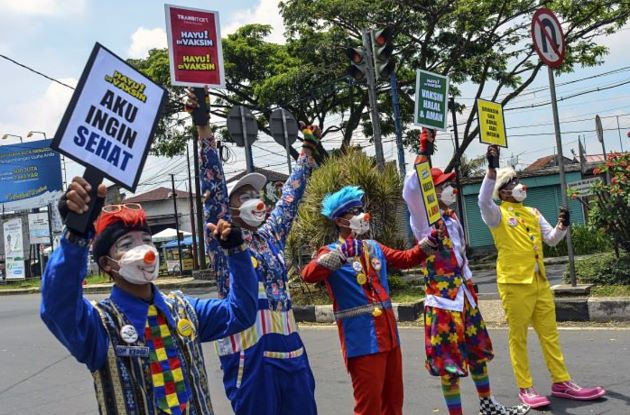Popular Reads
Top Results
Can't find what you're looking for?
View all search resultsPopular Reads
Top Results
Can't find what you're looking for?
View all search resultsToward a healthier future
Improving vaccine distribution and education, boosting healthcare infrastructure, and addressing vaccine hesitancy are necessary to further contain the virus and protect all citizens.
Change text size
Gift Premium Articles
to Anyone
T
he World Health Organization has declared the COVID-19 pandemic no longer a global health emergency, but it is too early to celebrate. Instead, we call on the government and the people alike to remain vigilant.
The last three years and the devastation caused may now seem like a distant past. Or perhaps we want to move away as far as possible from that dark episode of our timeline. But we must be cautious as a new chapter now seems to be in sight.
When WHO Director General Tedros Adhanom Ghebreyesus made the much-awaited announcement on May 5, an Arcturus-induced caseload spike in some countries, including Indonesia, still lingered.
On May 3, Indonesia reported 2,647 new infections, the highest daily caseload in five months. In the past week, the caseload has risen by over 1,500 per day with a total of 18,542 active cases recorded over the weekend.
To date, the virus has infected more than 765 million people and caused at least 6.9 million deaths globally, although according to the WHO the real number of fatalities is closer to 20 million.
Emerging variants have demonstrated increased transmissibility and the potential to evade certain immune responses. These evolving threats emphasize the need for persistent vigilance, including adherence to preventive measures and timely adjustments to effectively address the changing landscape of the pandemic.
Indonesia, like many other countries, has faced unique challenges during the pandemic.
The vast geographical spread and limited healthcare resources have posed significant hurdles. To combat the virus, the country implemented various measures such as social distancing, testing and mass vaccination.
But even when the end is within sight, continuous efforts are necessary to protect the population.
"One of the greatest tragedies of COVID-19 is that it didn't have to be this way," Tedros said, decrying that "a lack of coordination, a lack of equity and a lack of solidarity" meant "lives were lost that should not have been."
Ensuring equitable access to vaccines remains a critical priority in Indonesia. While significant strides have been made in the vaccine rollout, there are still challenges in reaching remote areas and vulnerable populations.
Improving vaccine distribution and education, boosting healthcare infrastructure and addressing vaccine hesitancy, are necessary to further contain the virus and protect all citizens.
Like what it did to multitudes of aspects, the pandemic exposed vulnerabilities in our country’s healthcare system. The need to bolster healthcare infrastructure, increase capacity and prioritize the well-being of healthcare workers is obviously paramount.
Investments in healthcare facilities, training and equipment will enhance the country's ability to respond effectively to future challenges and mitigate the impact of COVID-19 and other potential outbreaks.
As restrictions ease and social interactions resume, it is crucial to maintain protective measures. At the very least, mask-wearing at high-risk places and hand hygiene should remain the norms, particularly in crowded places.
Public awareness campaigns and education should emphasize the importance of personal responsibility in curbing the spread of viruses, not just the coronavirus.
As we navigate the post-pandemic era, we would like to remind the government and fellow Indonesians of the need for sustained vigilance, despite how repetitious this message may be.
The pre-COVID era will be for us to fondly reminisce about. That “normal” time is in our past. We are not going back but we are going ever forward.
For all the darkness it brings, the pandemic sheds light and shows us many ways of doing things better. One example, COVID-19 brought us to realize what long-distance communication and remote working can do for us; things that were beyond our imagination three years ago.
The WHO and its member states have started discussions about an international treaty or something similar to draw lessons from mistakes made in the COVID-19 pandemic and ensure the world reacts more effectively and equitably to the next one.
The question is not if, but when. Let us learn from the easing pandemic and stay on alert as we strive for a healthier future.











